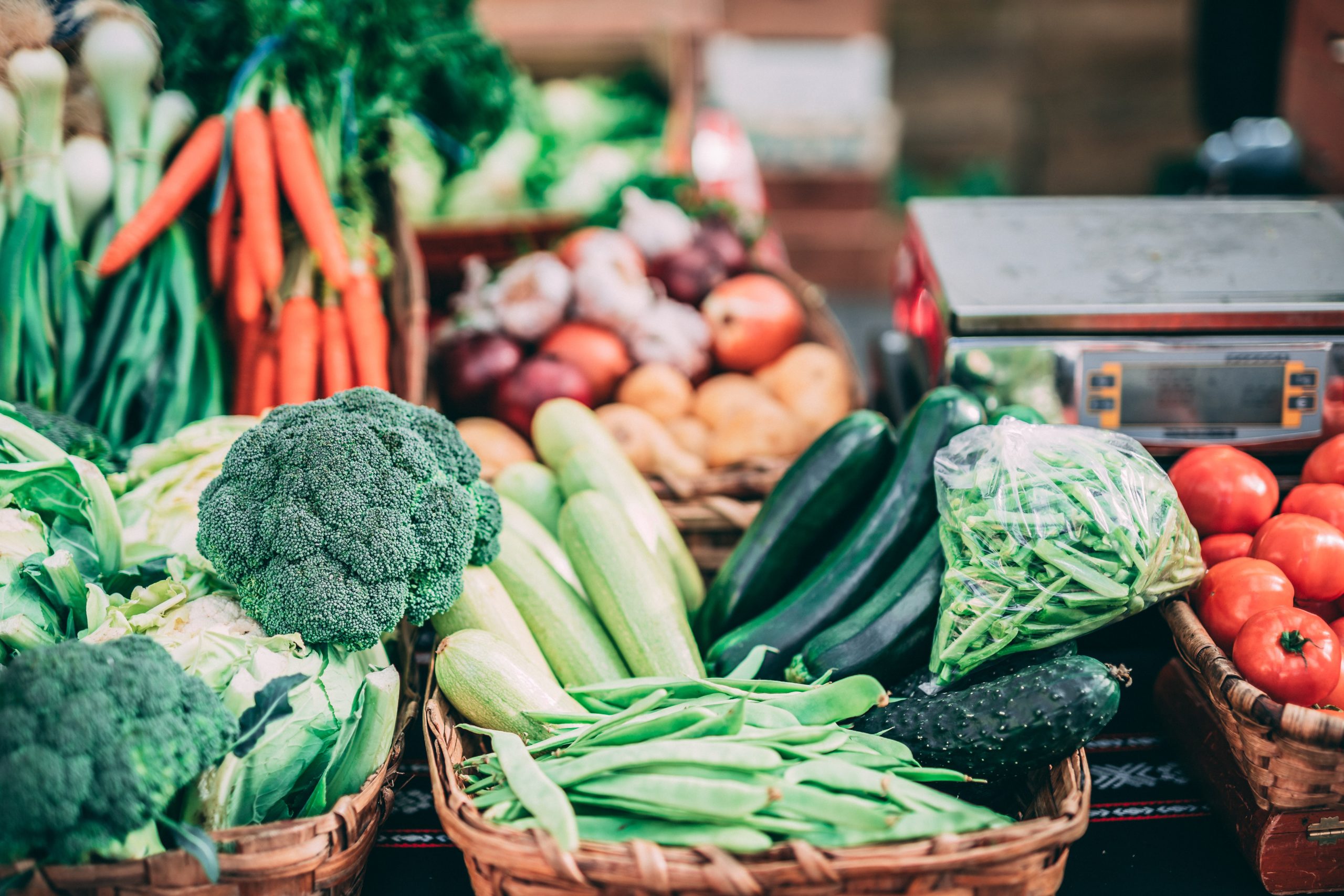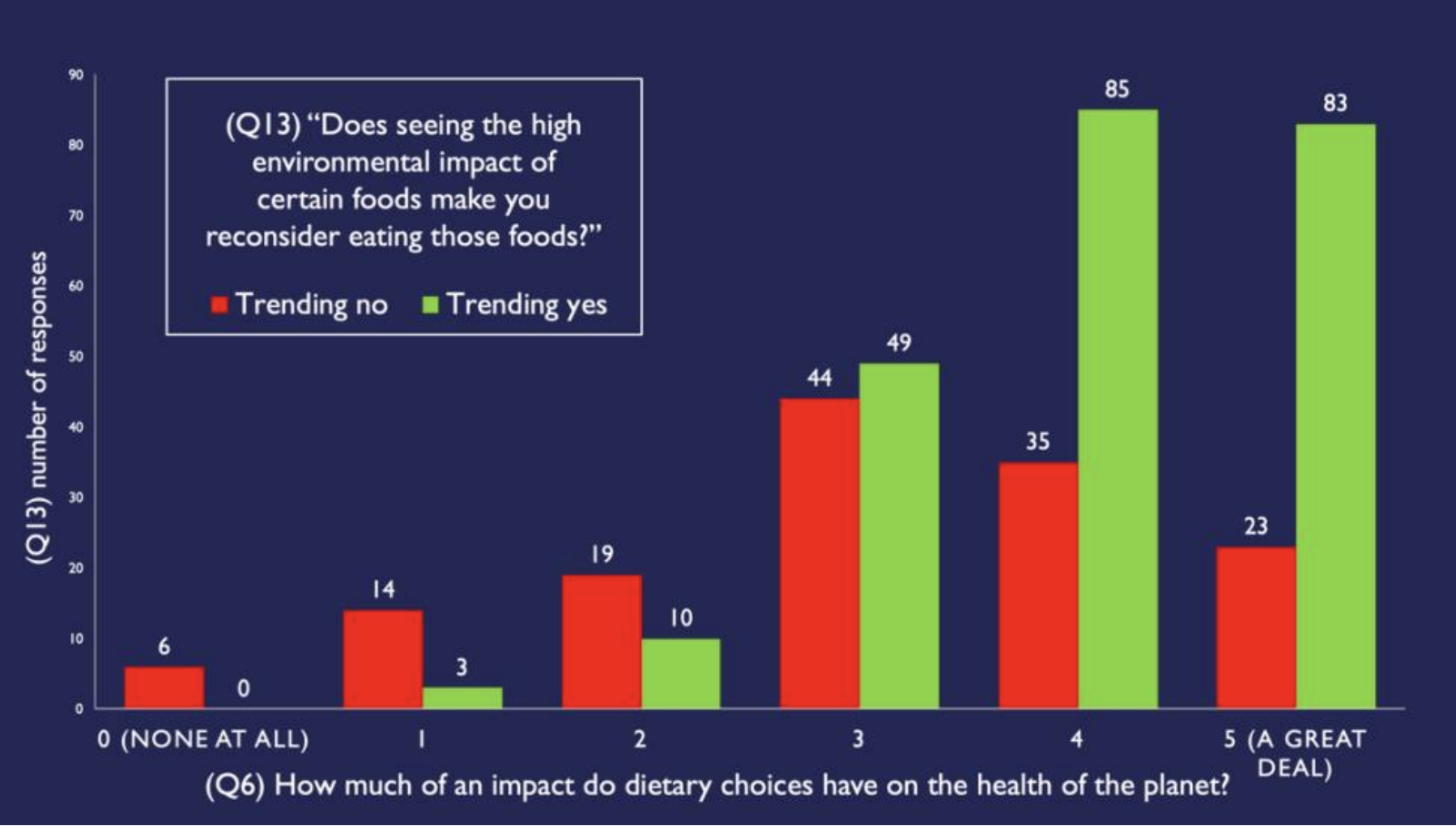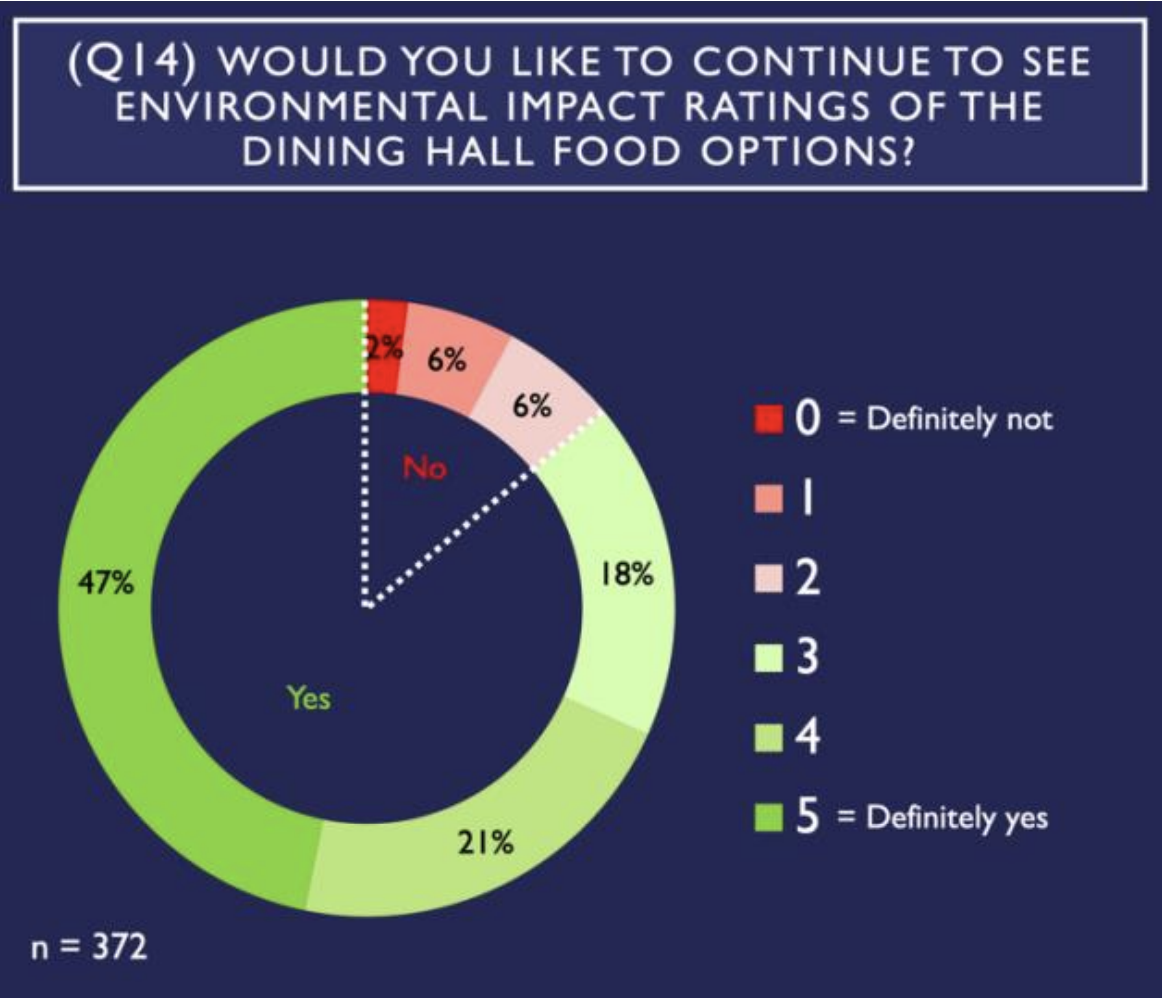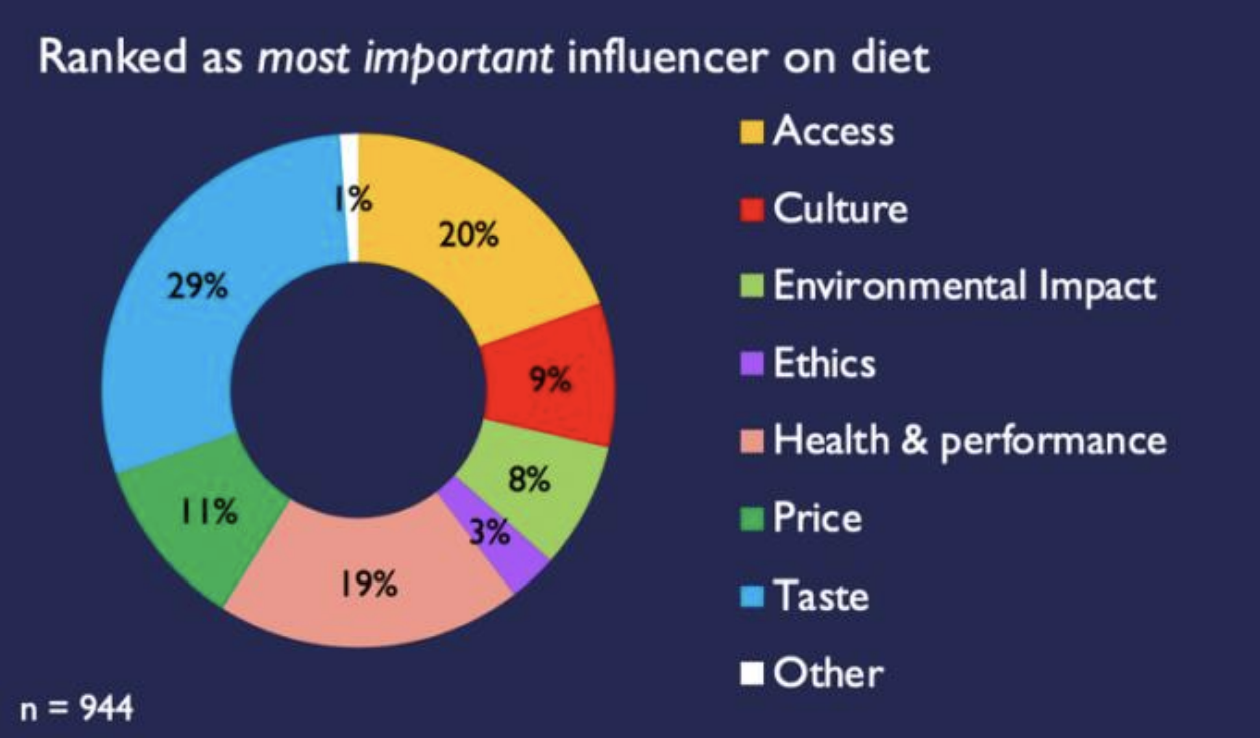Blog · March 16, 2020
Yale Students Report Willingness to Adopt More Sustainable Diets
By Addison Luck and Gemma Shepherd
If Yale wants to meet its target of carbon-neutrality by 2050, diet must be addressed. Globally, food systems are responsible for up to 37% of greenhouse gas emissions and contribute to a wide variety of additional environmental damage including deforestation, water usage, biodiversity loss, ocean acidification, and eutrophication.[1] The size of the impacts varies wildly across food types, and it is now believed that avoiding animal products is the single biggest way an individual can reduce their environmental impact.[2]
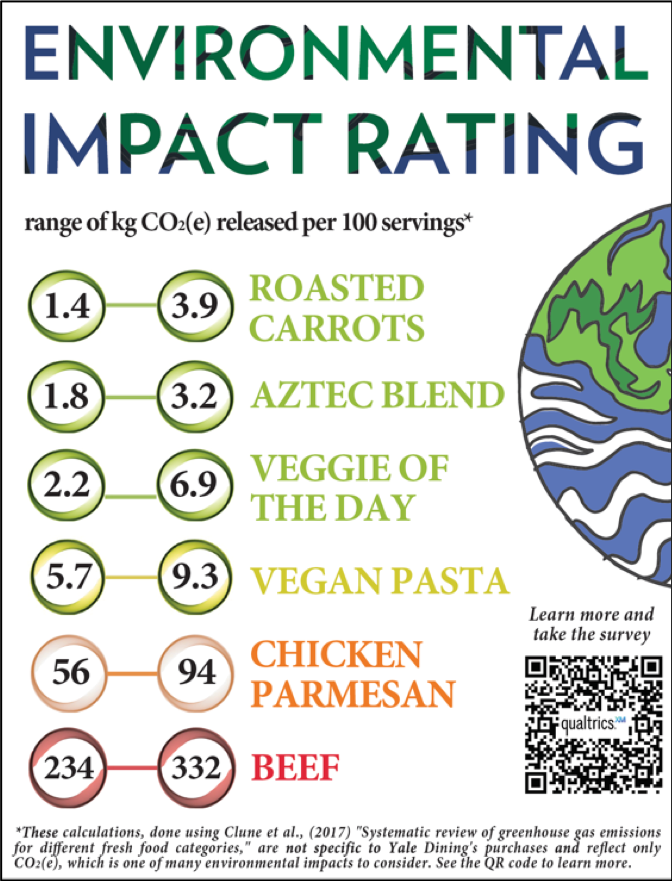 In February 2020, the two of us–both environmental studies seniors at Yale College–led a week-long project investigating one way for Yale to address this issue. With the help of volunteers, we placed environmental impact posters in Yale undergraduate dining halls for one week and surveyed students on their reactions. The posters, an example of which can be seen at right, provided the estimated emissions associated with each dinner-time entrée that Yale Dining served that particular night.
In February 2020, the two of us–both environmental studies seniors at Yale College–led a week-long project investigating one way for Yale to address this issue. With the help of volunteers, we placed environmental impact posters in Yale undergraduate dining halls for one week and surveyed students on their reactions. The posters, an example of which can be seen at right, provided the estimated emissions associated with each dinner-time entrée that Yale Dining served that particular night.
After running a successful pilot-study in Pierson College last year, we worked with Yale Hospitality to expand the project to ten of the fourteen undergraduate dining halls at Yale. In total, we collected 944 survey responses. For a sense of perspective, there are around 6,000 undergraduate students at Yale. A summary of key findings we collected, much of which builds upon the recently published YPCCC study Climate Change and the American Diet, can be seen below.
Summary of key findings:
- 65% of respondents identified as an omnivore. 10% identified as vegetarian, and 5% identified as vegan.
- 62% of students reported that they reconsidered eating certain foods when they saw that they had a high environmental impact. This lines up with YPCCC’s finding that 51% of the American public would consider eating more plant-based foods if they had more information about the impacts of different products and/or foods.
- According to Climate Change and the American Diet, Americans who are alarmed or concerned about global warming are more willing to adopt plant-based diets. Our study found the same is true among Yale students. For students who believed diet to have great impact (an answer of 5 on a scale of 0 to 5, with 0 being the lowest) on the health of the planet, 78% responded that they reconsidered eating foods with high environmental impact. Of students who believed diet to have 4 out of 5 impact on the health of the planet, 71% reconsidered eating environmentally harmful foods. On the other side of the spectrum are the students that believed diet to have no influence on the health of the planet. Of these students, only 25% reconsidered eating environmentally-harmful foods.
- 86% of students surveyed want to continue to see environmental impact ratings in the dining halls.
- Taste was most commonly ranked (by 29% of students) as the most important influencer on diet. This was followed by access (20%), health & performance (19%), price (11%), culture (9%), environmental impact (8%), ethics (3%), and other (1%). Similarly, YPCCC found that taste was an important factor for the American public. Two in three Americans would be more willing to eat plant-based foods if they tasted better than they do today.
This project sheds light on the need and desire among Yale students for environmental impact ratings in dining halls. We believe that just as consumers have the right to know caloric information, allergens, and ingredients, they have the right to know what impact their food choices have on the planet. Without this knowledge, it will be difficult for students to feel inspired to pursue more sustainable diets. It is widely known that animal agriculture has a disproportionately large impact on the planet, but there is a general lack of action being taken to address this among universities and institutions in the United States. We hope that these results can inspire Yale Dining to provide environmental impact labels full-time, ideally on their existing information placards that provide ingredients, nutrition, and allergens. The movement to rank the environmental footprint of food, clothing, and materials is growing around the world, and Yale has the opportunity to be a global model for other universities, institutions, and corporations.
We would like to thank our faculty advisers (Marney White, John Wargo, and Grant Calderwood), the organizations on campus (Yale Hospitality, the Yale Office of Sustainability), and the student volunteers (Yale Sustainability Liaisons, Yale Animal Welfare Alliance) that made this project possible.
[1] Intergovernmental Panel on Climate Change (2019). “IPCC Special Report on Climate Change, Desertification, Land Degradation, Sustainable Land Management, Food Security, and Greenhouse gas fluxes in Terrestrial Ecosystems.” UNEP;
[2] Carrington, Daniel (2018). “Avoiding meat and dairy is ‘single biggest way’ to reduce your impact on Earth.” The Guardian
